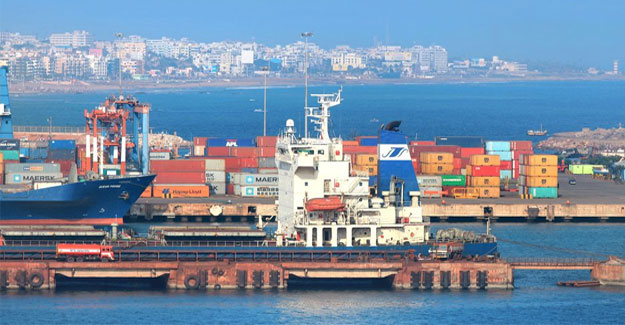
CIAe Seeks Govt. Support To Survive Covid-19
The Covid-19 pandemic has snowballed into a crises for Indian exporters, particularly affecting the apparel export sector. Rough estimates suggest that apparel and textiles exports may be down by 35-40% this year alone, according to the Confederation of Indian Apparel Exporters (CIAe). Amit Goyal, President, CIAe explained that the apparel industry has been standing shoulder to shoulder with the government’s decision of the national lockdown and has been trying extremely hard to maintain the balance between ‘Lives & Livelihood’. “The apparel industry also believes that the government’s priority is our brothers from the agriculture industry first, however the next most important sector that should be taken care of is the SME and MSME sectors, especially the labour intensive industries like textiles and apparel,” he believes. Goyal said, “The apparel and textile industry which employs one of the largest workforce after agriculture, is in a coma and is desperately looking for a ventilator. Gasping for breath, several exporters may not be able to survive these extremely difficult global economic conditions.” The apparel sector has sent a detailed recommendation to the ministry on March 23, 2020. But so far no concrete relief package has been announced, he said. “Exporters have been discussing amongst their peers on how to stay afloat and not to retrench any of their staff, and to think ahead and be able to see that in the next 6-9 months we may be able to tide the wave,” he added. Here are some the key facts about the current state of apparel exports:
- All branded apparels made for exports is made for a particular season and once the season is over the goods are treated like a perishable commodity. For example, no one will buy short sleeve shirts or shorts in the winter and exporters may have to give 50% -75% discount to get rid of their stock.
- Several major stores like Primark, Top Shop and others have already cancelled orders worth hundreds of crores.
- Half finished goods have been lying in the mills and production units for over 45 days and these will be damaged if not shipped.
- Global demand for apparel in USA and EU, India’s major trading partners is expected to drop by over 15%-20%.
- Almost all customers are asking for an extension in payment terms for up to 180 days. By complying with this, the exporters liquidity will be crushed.
- If factories don’t open by mid-May, companies will be forced to lay off workers and will just not be able to sustain.
- Interest subvention scheme which is available to the textile sector maybe be extended upto 31st March 2021.
- Since most overseas buyers are going to ask for extended payment terms all the documents already submitted in the banks should be automatically extended upto 180 days as per request from exporters.
- No interest or penal interest should be charged by the banks for these delayed payments of upto 180 days from the due date.
- ECGC needs to play a pivitol role during this time and give coverage to all exporters on much quicker time frame and/or a larger coverage amount
- Government should defer collection of GST from all companies upto 30th June 2020
- Banks should grant all exporters 25% additional ad hoc limits to overcome this crisis without any further collateral.
- Pending GST refunds / ROSL , DBK be expedited so the blocked working capital can be used at such times
- Since all factory workers and other unskilled workers and staff will be out of work for a minimum of two months and to avoid companies firing them, the government may consider direct fund transfer to their accounts through AADHAR or similar schemes.
Textile Excellence
If you wish to Subscribe to Textile Excellence Print Edition, kindly fill in the below form and we shall get back to you with details.












